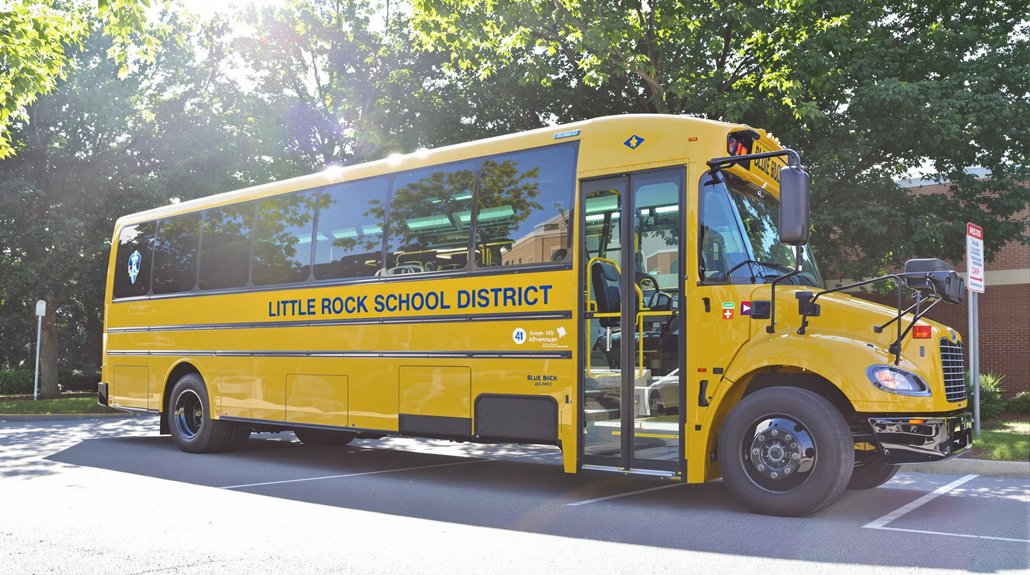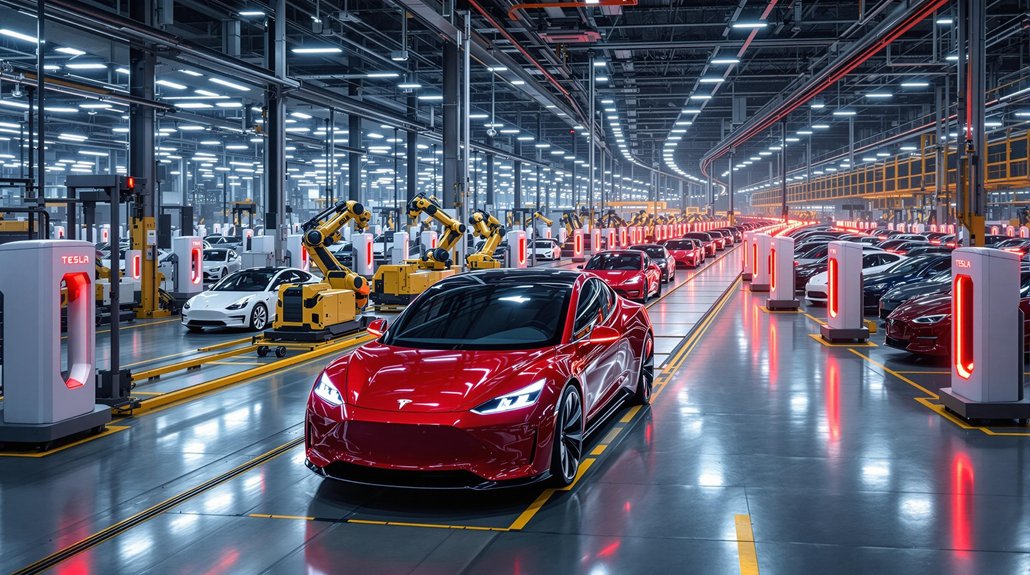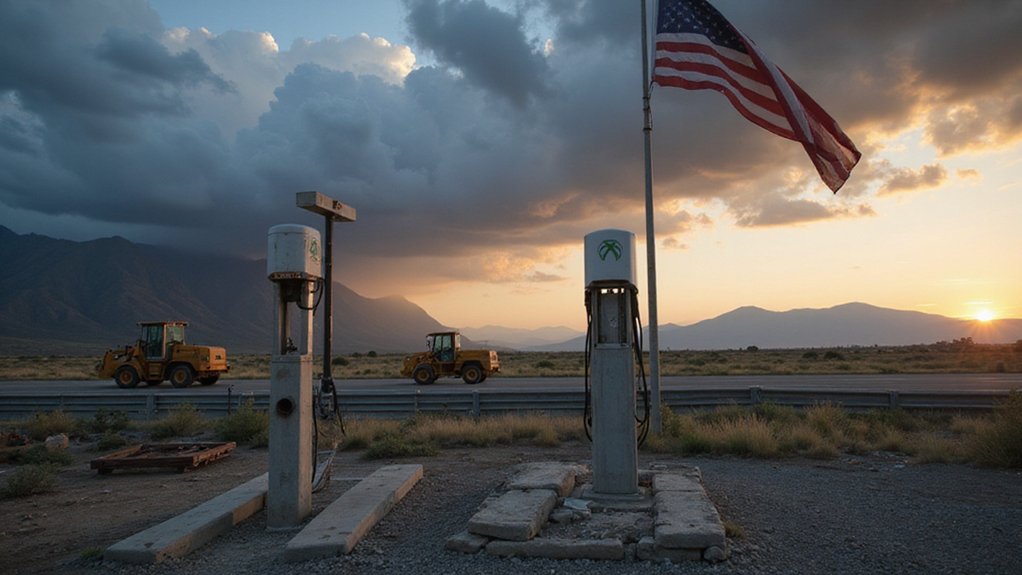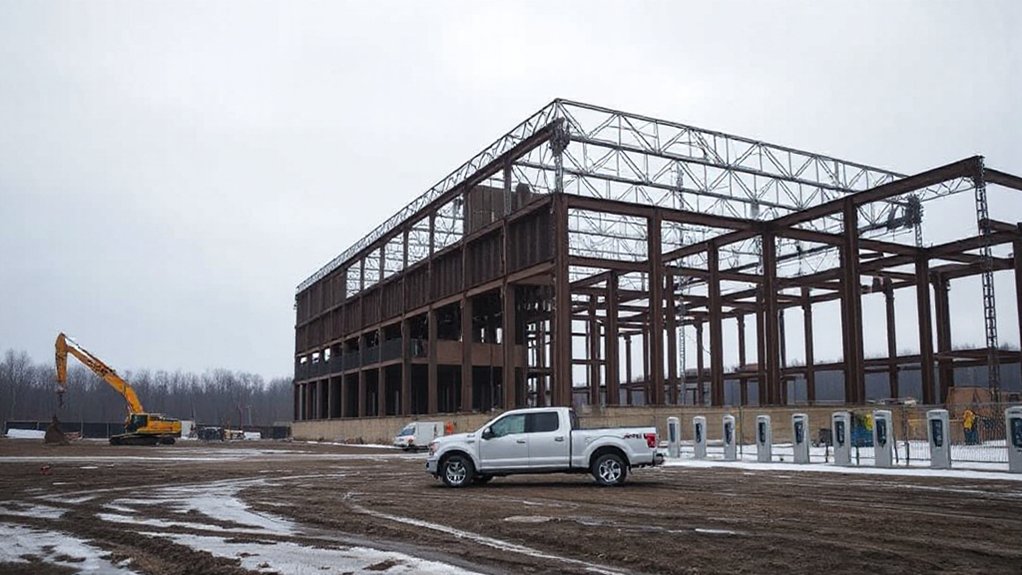A major change is coming to Arkansas schools as the Little Rock School District (LRSD) introduces 25 zero-emission electric school buses to its fleet. The district received over $9 million from the Environmental Protection Agency’s Clean Bus Program to acquire these buses, making LRSD the largest public school system in Arkansas with electric buses and the 8th largest fleet of its kind nationwide.
Blue Bird Corporation delivered the buses through Central States Bus Sales. These Vision electric buses can travel up to 130 miles on a single charge and recharge fully in just two hours. Each bus can carry up to 69 students and includes advanced safety features for all students.
The new buses will serve about 500 students daily, with priority given to students with special needs. They’ll travel nearly 1,400 combined miles each day across the district. LRSD expects to save around $100,000 annually in fuel costs compared to diesel buses.
LRSD’s electric buses will transport 500 students daily, prioritizing special needs while saving $100,000 annually in fuel costs.
Beyond financial benefits, the electric buses offer significant health advantages. They produce zero tailpipe emissions, reducing harmful pollutants that can cause respiratory problems in children. Studies show that diesel school buses contribute to the majority of pollutants affecting children’s health in school environments. The buses are also much quieter, creating a less disruptive environment for students and communities.
“This is an investment in innovation and sustainability,” said city officials who strongly support the initiative. The project has received enthusiastic backing from the community, who recognize the positive impact on student wellness.
The district has prepared for this change by training maintenance personnel and drivers on electric vehicle systems. As the third-largest district in Arkansas, LRSD is setting an important example for other school systems considering sustainable transportation options. This initiative aligns with broader efforts to reduce carbon emissions from transportation, which is critical as traditional energy-intensive operations contribute significantly to environmental degradation. The buses will begin operating at the start of the 2025-2026 school year.
With fewer moving parts than diesel buses, the electric fleet is expected to require less maintenance. Real-time monitoring technology will help the district manage the fleet efficiently and optimize routes.
The move represents a significant step toward cleaner, healthier transportation for Little Rock’s 19,000 students and demonstrates the district’s commitment to environmental responsibility and student well-being.
References
- https://katv.com/news/local/little-rock-school-district-debuts-eco-friendly-electric-buses-for-special-needs-students
- https://cleantechnica.com/2025/08/08/blue-bird-delivers-electric-school-bus-fleet-to-little-rock-school-district-in-arkansas/
- https://www.lrsd.org/article/2345224
- https://www.instagram.com/p/DNGocGKSG-Q/
- https://www.youtube.com/watch?v=juFsvOcSWKE








